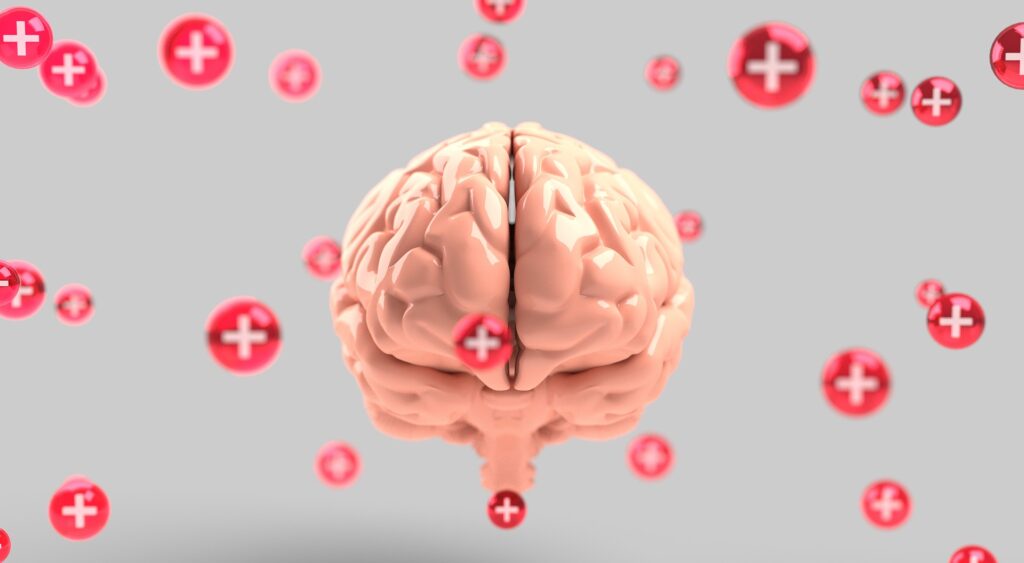The Best Foods for Brain Health
Health Everyday Feeding Your Intellect: Top Foods for Optimal Brain Health It is often said that “you are what you eat.” This phrase holds true not just for your physical well-being but also for your brain health. To function at its best, your brain requires the right nutrients, just like the rest of your body. By consuming the appropriate foods, you can bolster your brain’s cognitive abilities, improve your memory, and decrease the likelihood of age-related cognitive decline. So, which foods are the best for brain health? Let’s delve in and find out! 1. Nourishing Your Neurons: Top Brain-Boosting Foods Omega-3 fatty acids play a crucial role in brain health, as they help build and maintain brain cell membranes. This process improves communication between brain cells, potentially enhancing cognitive function and memory. Research also indicates that consuming omega-3s can lower the risk of age-related cognitive decline, such as Alzheimer’s disease. Additionally, omega-3s possess anti-inflammatory properties that can reduce inflammation in the brain, which is associated with several neurological disorders. What are some foods high in omega-3 fatty acids? Foods Rich in Omega-3 Fatty Acids: Incorporate these brain-enhancing foods into your diet for a delicious and nutritious way to support cognitive function and decrease the risk of age-related cognitive decline: 1. Fatty fish (salmon, tuna, mackerel) 2. Flaxseeds and chia seeds 3. Walnuts 4. Soybeans 5. Spinach and kale 1. Fatty Fish (Salmon, Tuna, Mackerel) Fatty fish are an excellent source of omega-3 fatty acids, which are vital for brain health. Omega-3s help build and maintain brain cell membranes, improve communication between brain cells, and possess anti-inflammatory properties that lessen inflammation in the brain. Consuming fatty fish regularly has been connected to enhanced cognitive function, memory, and a reduced risk of age-related cognitive decline. 2. Flaxseeds and Chia Seeds Flaxseeds and chia seeds are abundant in omega-3 fatty acids, as well as fibre and other essential nutrients. These seeds are an ideal plant-based source of omega-3s for individuals who do not consume fish. Omega-3s are crucial for brain health as they help build and maintain brain cell membranes, improve communication between brain cells, and reduce inflammation in the brain. Flaxseeds and chia seeds can be effortlessly added to smoothies, porridge, yoghurt or baked goods for a tasty and nutritious boost. 3. Walnuts Walnuts are another excellent source of omega-3 fatty acids, along with protein, fibre, and other vital nutrients. Similar to other foods rich in omega-3s, walnuts can enhance cognitive function, memory, and reduce the risk of age-related cognitive decline. Besides their brain health benefits, walnuts have also been linked to a decreased risk of heart disease and other chronic illnesses. 4. Soybeans Soybeans are a fantastic source of protein, fibre, and other essential nutrients. They are also high in compounds called isoflavones, which have been linked to improved cognitive function and memory in some studies. Soybeans can be consumed as edamame, added to stir-fries or soups, or used to produce tofu or soy milk. 5. Spinach and Kale Dark leafy greens like spinach and kale are rich in nutrients like folate, vitamin K, and antioxidants that are important for brain health. Folate, in particular, has been linked to improved cognitive function and a reduced risk of age-related cognitive decline. Antioxidants in these greens can also protect the brain from damage and inflammation. Spinach and kale can be easily added to salads, smoothies, or sautéed as a side dish. 2. Berry Brilliance Berries are a delicious and convenient method to support brain health. They’re packed with antioxidants, which can protect the brain from damage and inflammation. Chronic inflammation in the brain is associated with several neurological disorders, including Alzheimer’s and Parkinson’s diseases. Antioxidants in berries can also enhance cognitive function and memory, making them excellent food for brain health. What are some types of berries that are best for brain health? Here are some of the best berries for brain health: Incorporating berries into your diet is a fantastic way to bolster brain health and reduce the risk of age-related cognitive decline. Berries can be enjoyed fresh, frozen, or added to smoothies, yoghurt, porridge, or baked goods for a scrumptious and nutritious boost. 1. Blueberries 2. Strawberries 3. Blackberries 4. Raspberries 1. Blueberries Blueberries are often called a “superfood” because of their high levels of antioxidants and other beneficial compounds. Antioxidants protect the brain from damage caused by free radicals and inflammation, which can contribute to age-related cognitive decline. Eating blueberries regularly has been linked to improved cognitive function and memory, as well as a reduced risk of conditions like Alzheimer’s disease and Parkinson’s disease. 2. Strawberries Strawberries are another berry that is high in antioxidants, as well as vitamin C and other important nutrients. Vitamin C has been shown to protect the brain from damage caused by free radicals and inflammation, while other nutrients in strawberries have been linked to improved cognitive function and memory. 3. Blackberries Blackberries are a great source of fibre, vitamin C, and other important nutrients. They are also high in antioxidants, which protect the brain from damage and inflammation. Some studies have even suggested that blackberries may have a positive effect on cognitive function and memory. 4. Raspberries Raspberries are another berry that is high in antioxidants and other beneficial compounds. In addition to protecting the brain from damage and inflammation, raspberries may also have a positive effect on cognitive function and memory. They are also a good source of fibre and other nutrients that are important for overall health. 3. Dark Chocolate Decadence Yes, you read correctly! Dark chocolate can be beneficial for your brain. It contains flavonoids, which are antioxidants that enhance blood flow to the brain. Improved blood flow can boost cognitive function and memory. Flavonoids also possess anti-inflammatory properties, which can reduce inflammation in the brain and protect against age-related cognitive decline. Enjoying dark chocolate in moderation While it might be tempting to indulge in an entire bar of dark chocolate, moderation is essential. Aim for a small square of

